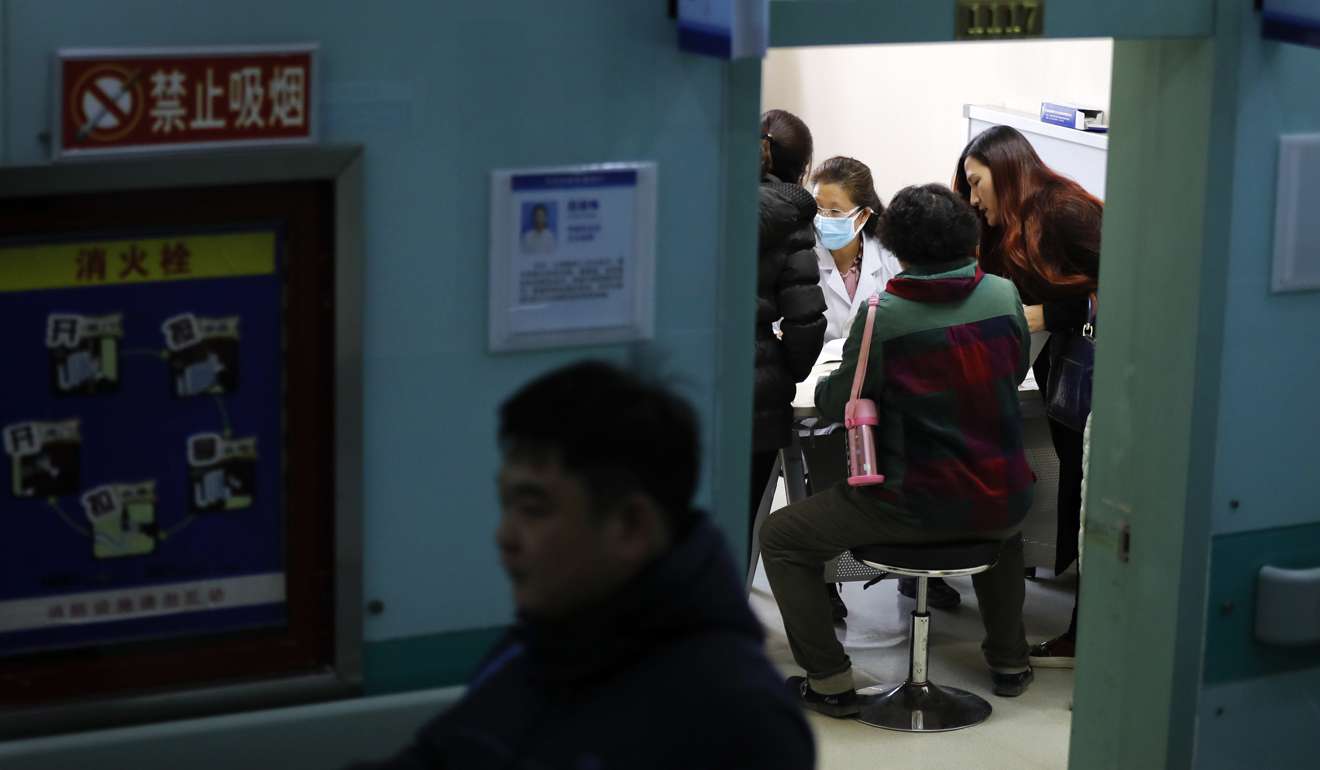
China’s private hospitals struggle to attract top physicians
However, a shortage of quality doctors could hinder the sector’s growth and further dent the country’s drive to reform its overburdened public health-care system, analysts say.
“Large public hospitals are reluctant for doctors to leave their posts as they have spent so much time and resources to cultivate them,” said Li Bin, chief executive of Ally Bridge LB Healthcare Fund, a hedge fund that focuses on investing in Chinese and Asian health care companies.
“For this industry to flourish, the authorities must give doctors more room to operate in places they like,” Li said.
Chinese doctors are well paid relative to other industries, and usually enjoy a high degree of job security.
On the flip side, the institutional culture in the state-funded medical system tends to discourage doctors from working in multiple health facilities.

“The biggest difficulty faced by doctors considering a shift to a multi-site practice is to obtain the approval of their supervisors at the base hospitals,” John Yung, an analyst at Citi wrote in a recent note.
In theory, Chinese doctors have been allowed to work at multiple medical institutions since 2009, when the “Notice of the issues regarding multiple-site practice by physicians” was issued by the National Health and Family Planning Commission, the country’s highest medical regulatory body.
The policy was intended to help attract medical professionals into private hospitals in order to help relieve pressure on the state-supported health care system.
However the initiative has fallen short of expectations over the years.
In Beijing, the number of doctors seeking to work in multiple clinics and hospitals rose to 3,000 in mid-2015, up from 1,993 at the start of the year, according to Citi.
“Nevertheless, this accounts for only 4 per cent of the total physicians in the city,” Yung said.
Similarly, less than 2.2 per cent of China’s 2 million physicians nationally applied for a multiple site practise permit in 2015, according to a Worker’s Daily report.
In one instance, a psychiatric doctor in the Central Chinese city of Wuhan was reported to have been fired for working at a private clinic without reporting to his supervisor in advance, according to the Chutian Metropolis Daily.
“How come I was fired? I followed the national policy that encourages doctors to operate at multiple sites,” the doctor was quoted as saying in the report.
Some doctors are believed to be reluctant to work in private hospitals amid concerns about the quality of care offered.
“Many of my patients told me of the bad experience they had in private clinics,” said Dr Ru Yan, who works at a public hospital in a city in southwestern China.
Ru said it’s rare for doctors to transfer from the public to the private sector despite better pay and other benefits.
She cited job stability, generous benefits and rebates from pharmaceutical and medical device providers as reasons doctors prefer to stay in government-funded hospitals and clinics.
Doctors at state-backed institutions earn roughly 150,000 to 200,000 yuan (US$21,850 to US$29,130) per year, a level that’s lower than what’s on offer in the private sector.
“Salary is not the decisive factor for Chinese doctors when choosing jobs,” Ru said.
The tendency for research and teaching facilities to be located within state-run hospitals was another factor keeping doctors from leaving, according to Ru.
As a general rule, private hospitals usually attract fresh graduates or retired doctors, which explains why they are often perceived as inferior to the quality of care at public hospitals, Yung said.
Citi said in a report dated January 3 that it was initiating coverage on three companies related to hospital reform in China, and assigning a “buy” advisory to each. These include Hong Kong-listed China Resources Phoenix Healthcare, and the Shenzhen-listed companies Aier Eye Hospital Group and Zhejiang DiAn Diagnostics.

